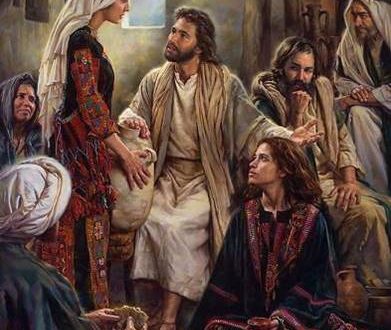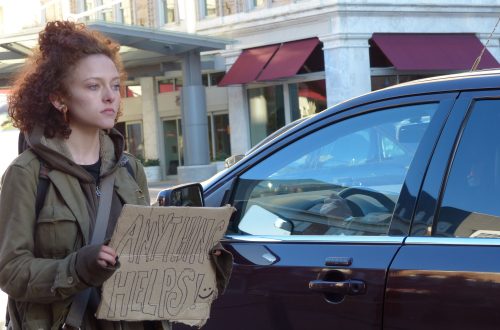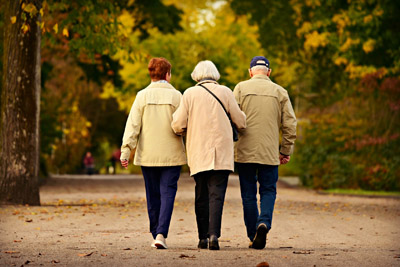Are the “Widows” in 1 Timothy 5 Leaders, Needers, or Both?
One of my students, Corinne Samuelson, has spent the summer investigating what’s happening with “widows” in 1 Timothy 5. At first glance, one might think Paul was simply instructing Timothy about how to handle the many hungry older women in the Ephesian church (1:3). But on closer exploration we see a description of what might look like an office. That's a challenging question. As Corinne notes, “While Timothy would have surely understood Paul’s instructions about widows in the Ephesian Church, 1 Timothy 5:3–16 leaves today’s readers with many questions.” Each of the questions below (most of which she crafted) are worth considering when making interpretive decisions about this passage:
- Meaning of “to honor” (τίμα, v. 3) – (“Give proper honor to those widows who are really in need.”) Does “to honor” imply interpersonal respect, financial support, or both? Is this a parallel to granting “double honor” to elders who teach (v. 17)?
- Placement of need/pleasure contrast (v. 5–6) – (“The widow who is really in need and left all alone puts her hope in God and continues night and day to pray and to ask God for help. But the widow who lives for pleasure is dead even while she lives.”) Is the reference to need/praying a Pauline tangent, further description of the “real” widow, or a prerequisite for enrollment?
- Meaning of “to enroll” (καταλεγέσθω, v. 9) – (“No widow may be enrolled unless she is over sixty, has been faithful to her husband, and is well known for her good deeds, such as bringing up children, showing hospitality, washing the feet of the Lord’s people, helping those in trouble and devoting herself to all kinds of good deeds.”) What are the implications of “to enroll”? Did Paul simply describe a name being added to a charity list or is he implying accompanying duties for the person placed on a list? If the former, do we refuse food to hungry older women who have not done these things? The description parallels in many ways the description of an elder in 3:2–7 (faithful to his wife/faithful to her husband). Speaking of which…
- Meaning of “faithful to her husband” (ἑνός ἀνδρὸς γυνή , v. 9) – Was Paul referring to a woman who was married once only or is the emphasis on being a one-man kind of woman?
- List of qualifications/duties (v. 10) – “Raised children, practiced hospitality, washed the feet of the saints, helped those in distress”: does this list describe the past character of the widow in view, or was Paul outlining ongoing responsibilities of an enrolled widow?
- Meaning of “a widow who is really a widow” (τάς ὄντως χήρας; vv. 3, 5, 16) – What’s the difference between a “widow” and an “actual” or “real” widow? Her lack of family members, her devotion to God, the characteristics listed in vv. 3–10? All of the above? A few people roughly contemporary with Paul (e.g., Philo QE 2.3, Ignatius13.1) speak of “widows who are virgins”—suggesting the word was used to mean a “without-a-man woman.” So are there “widows” and then “actual widows”? And if so, did one include older single woman never married vs. those bereft of husbands?
- Different kinds of widows? – Are the widows in verse 9 and verses 3, 5, 16 one and the same, or was Paul referring to two types of widows (a “real widow” and “an enrolled widow”)?
- Meaning of “their first pledge” (τήν πρώτην πίστιν, v. 12) – What is the meaning of “pledge” (πίστιν)? The first wedding vow? Or a vow of office? Perhaps a vow of commitment to celibacy?
- Harsh language –(“being led away from Christ,” v. 11; “wandering after Satan,” v. 15) What actions did Paul have in mind here?
- Bad behavior – (“idlers, going house to house, talking nonsense,” v. 13) Was Paul insinuating young widows were spreading heresy, participating in witchcraft, or committing social faux pas? Can we gather from “going around from house to house” that these women were conducting bad house visits which were a part of their duties as enrolled widows? Does “house to house” refer to going from house church to house church?
- Overall purpose – Why did Paul give this instruction about enrolling widows and the qualifications? Did he provide here some requirements for selective charity, or was he talking about widows being enrolled into an order/office? Is there an overlap between the two? He wrote quite a bit about church organization in this letter to Timothy. Is it possible he had more in mind here than food distribution?
- Contradictory advice? – Is it problematic that Paul lists qualifications for widow enrollment for those who married once (v. 9), but instructs younger widows to remarry (v. 14)? Why would he give different advice to women in differing age groups? Is he taking into account Roman civil marriage laws that apply to younger but not older women?
- Background information – What pertinent background information about women and widows is helpful in understanding Paul’s instructions?
The options for translating and interpreting this passage are numerous. Considering that compared to fifty years ago we have a lot more social-background information (e.g., Roman civil laws) available to us, this passage is certainly due a closer look.




2 Comments
Pingback:
Kristi
I’d like to share… I hope you don’t mind. I found myself a 1 Tim 5:5 widow in 2020. I actually didn’t realize that was who I had become until a couple of years later. I take these passages very seriously and God warned me about stepping into the “other” widowhood where things go awry. I had only one husband, and he couldn’t have children, so I have none. I lost my parents in my 20’s and I am an only child so I have no immediate family. Any and all other “family” shunned my late husband and I because we would not accept abuse or inappropriate relationships with them (including something called Jacosta Complex). We fled a land of demon possessed people to escape it. After complaining to the Lord for a long time about my situation, He spoke to my heart about being content with my situation because in actuality, I chose it.
I could have people in my life if I would accept the abuse. But that wasn’t God’s plan for me. I have no church family because “the love of many has grown cold” since the pandemic. They are either disappointed that I do not have life insurance from him to share with them (his many health issues prohibited that), or the men are predatorial, or the “widow’s ministries” aren’t available because I work full-time during the week (because God is a faithful provider). I experience a great deal of rejection because of my status, no celebration for standing firm in my faith, no compassion or empathy for being in such an unusual position. The modern American church does not consider nor teach on the 1 Tim 5 widow (except one Calvary Chapel in Colorado had a great message on it once). When I tell a church my status, they assume I want them to contribute to me financially, which I do not, nor would I. Most church folk are so wrapped up in their own families and small circles to ever invite a stranger in, more-less “adopt” her into their family. People want a kitten or a puppy, not an old cat or dog, right?
Anyway, I just want to say that 1) God is so faithful and has been a better Companion to me during this time more than any church person has and 2) He has provided people to help me along the way, not concerned with their church attendance status (a friend to rent a room from for example). He has sent me words of encouragement, correction, and revelation when I’ve needed them. He has sat next to me and heard me whine and cry and struggle, never to leave my side. And I pray everyday that He would send me people who would honor Him with their lives and in a friendship with me, and if it is His will, I will have those people in my life someday.
The modern American church in 2024 needs to address a lot of things (demonic possession, satanic ritual abuse, incest and sexual abuse), but in my experience, they really, really, really need to stop looking at widows as potential forms of income and sexual opportunities and view us as God does and act appropriately. They need to help us practically with non-financial items that we can’t handle anymore because of our aging frames, they need to see us sitting by ourselves in a church and take the initiative to speak to us, they need to not run screaming from the building when hearing about the horror we escaped and stop treating us like lepers. And until they do, I will continue to pray night and day until He returns. It is hard living by yourself in a fallen world thinking no one would care if I live or die. I pray other widows do not experience this and I ask the church to stop having ulterior motives toward us and embrace us instead as Jesus would have. And for the widows out there acting entitled or haughty because of their situations, they need to take advantage of this time to study more, go deeper with God, and get ready to help others live in the end days and hopefully escape them, not sit around every Tuesday playing boardgames and complaining about their families. This is just my experience, and I realize how unique it is. God’s will be done.